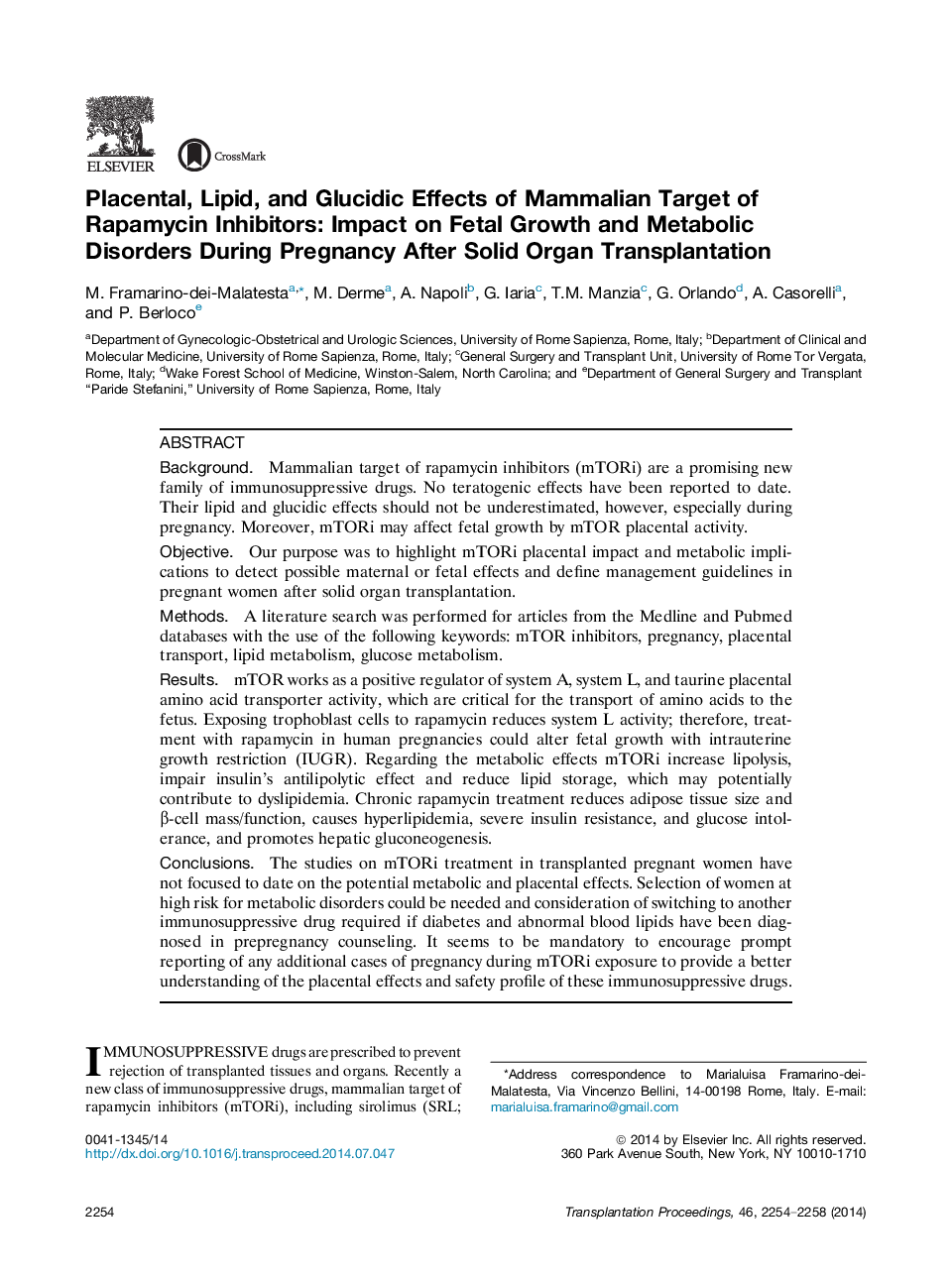| کد مقاله | کد نشریه | سال انتشار | مقاله انگلیسی | نسخه تمام متن |
|---|---|---|---|---|
| 4256432 | 1284523 | 2014 | 5 صفحه PDF | دانلود رایگان |
BackgroundMammalian target of rapamycin inhibitors (mTORi) are a promising new family of immunosuppressive drugs. No teratogenic effects have been reported to date. Their lipid and glucidic effects should not be underestimated, however, especially during pregnancy. Moreover, mTORi may affect fetal growth by mTOR placental activity.ObjectiveOur purpose was to highlight mTORi placental impact and metabolic implications to detect possible maternal or fetal effects and define management guidelines in pregnant women after solid organ transplantation.MethodsA literature search was performed for articles from the Medline and Pubmed databases with the use of the following keywords: mTOR inhibitors, pregnancy, placental transport, lipid metabolism, glucose metabolism.ResultsmTOR works as a positive regulator of system A, system L, and taurine placental amino acid transporter activity, which are critical for the transport of amino acids to the fetus. Exposing trophoblast cells to rapamycin reduces system L activity; therefore, treatment with rapamycin in human pregnancies could alter fetal growth with intrauterine growth restriction (IUGR). Regarding the metabolic effects mTORi increase lipolysis, impair insulin's antilipolytic effect and reduce lipid storage, which may potentially contribute to dyslipidemia. Chronic rapamycin treatment reduces adipose tissue size and β-cell mass/function, causes hyperlipidemia, severe insulin resistance, and glucose intolerance, and promotes hepatic gluconeogenesis.ConclusionsThe studies on mTORi treatment in transplanted pregnant women have not focused to date on the potential metabolic and placental effects. Selection of women at high risk for metabolic disorders could be needed and consideration of switching to another immunosuppressive drug required if diabetes and abnormal blood lipids have been diagnosed in prepregnancy counseling. It seems to be mandatory to encourage prompt reporting of any additional cases of pregnancy during mTORi exposure to provide a better understanding of the placental effects and safety profile of these immunosuppressive drugs.
Journal: Transplantation Proceedings - Volume 46, Issue 7, September 2014, Pages 2254–2258
